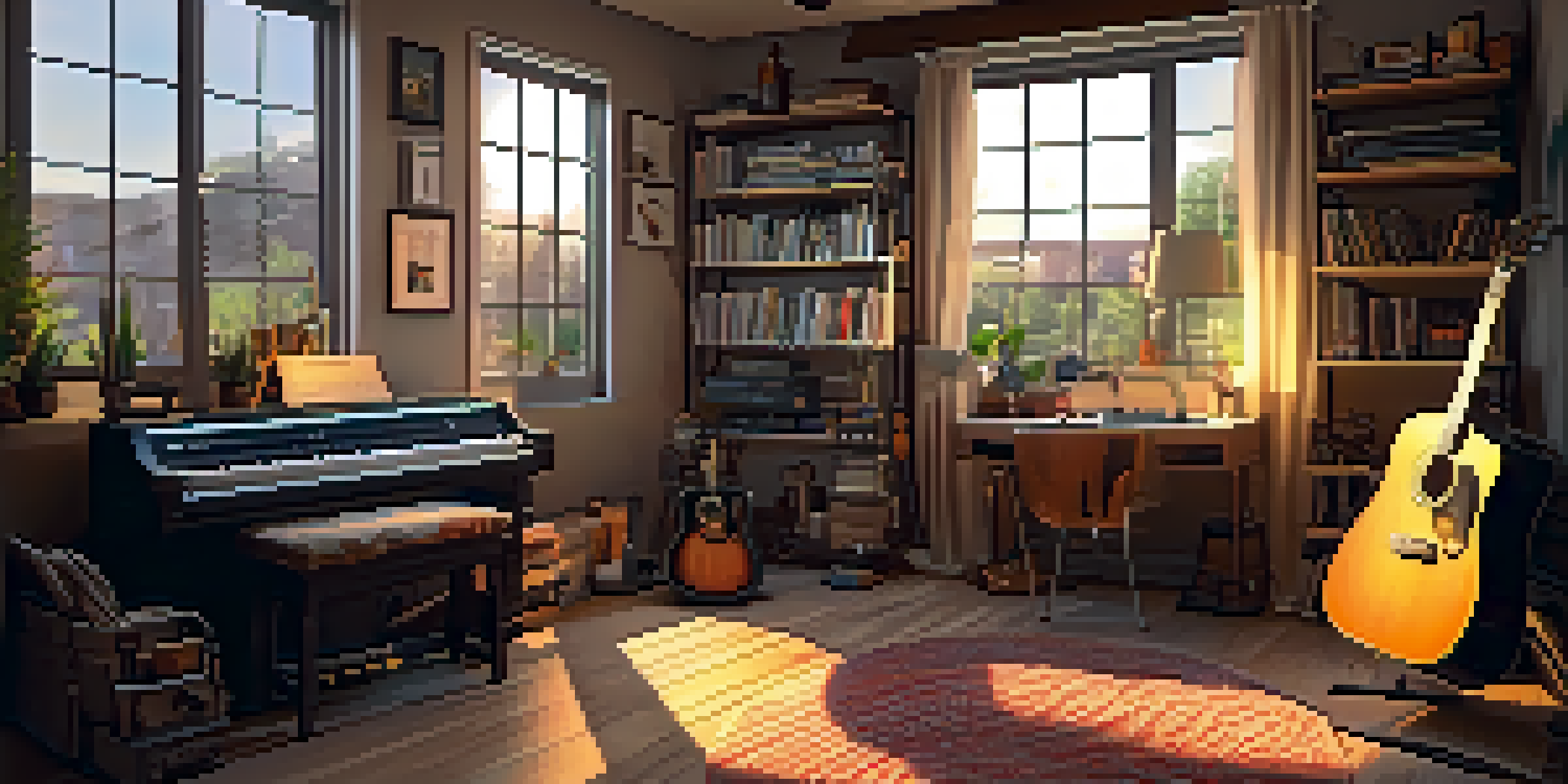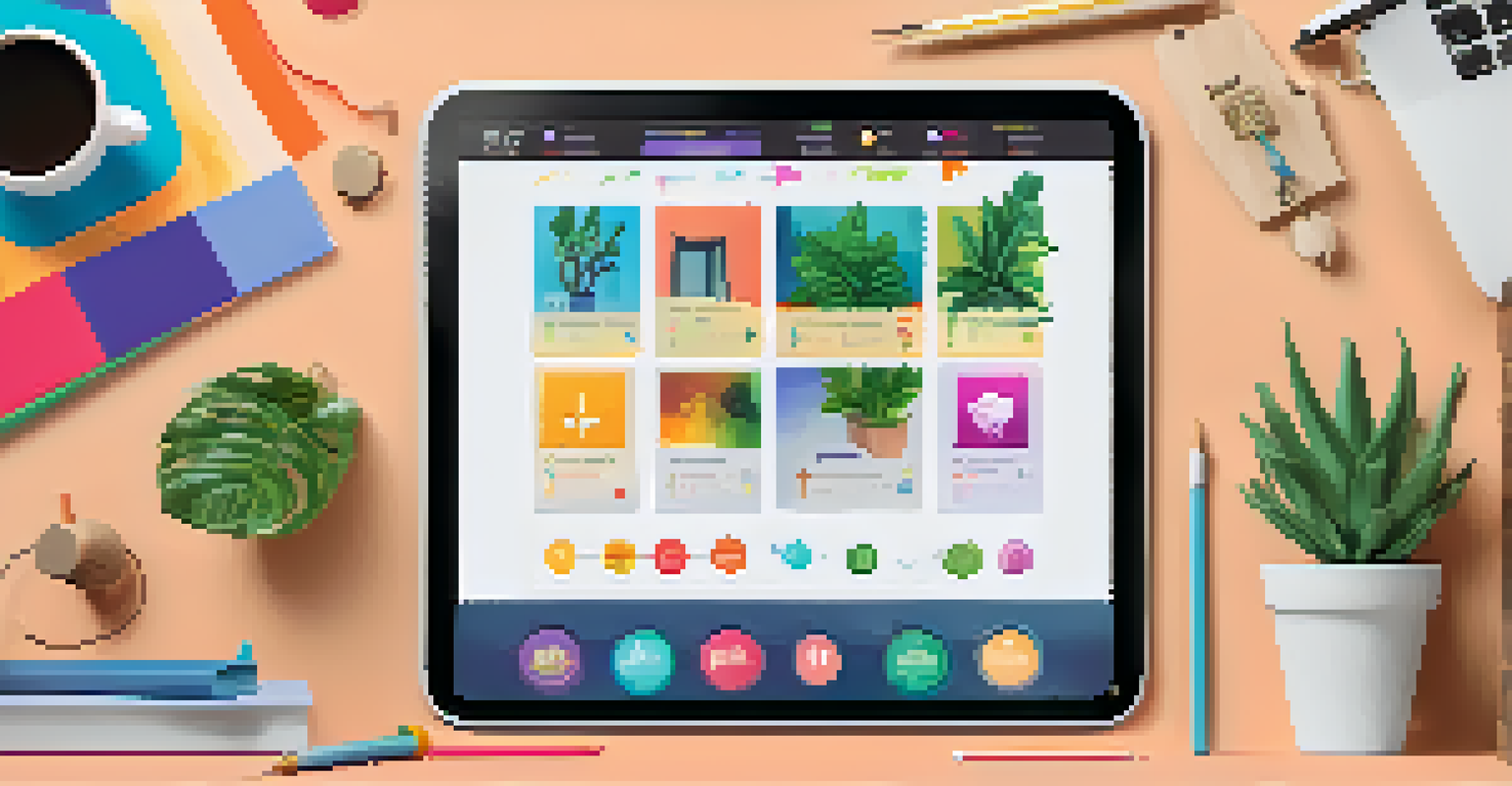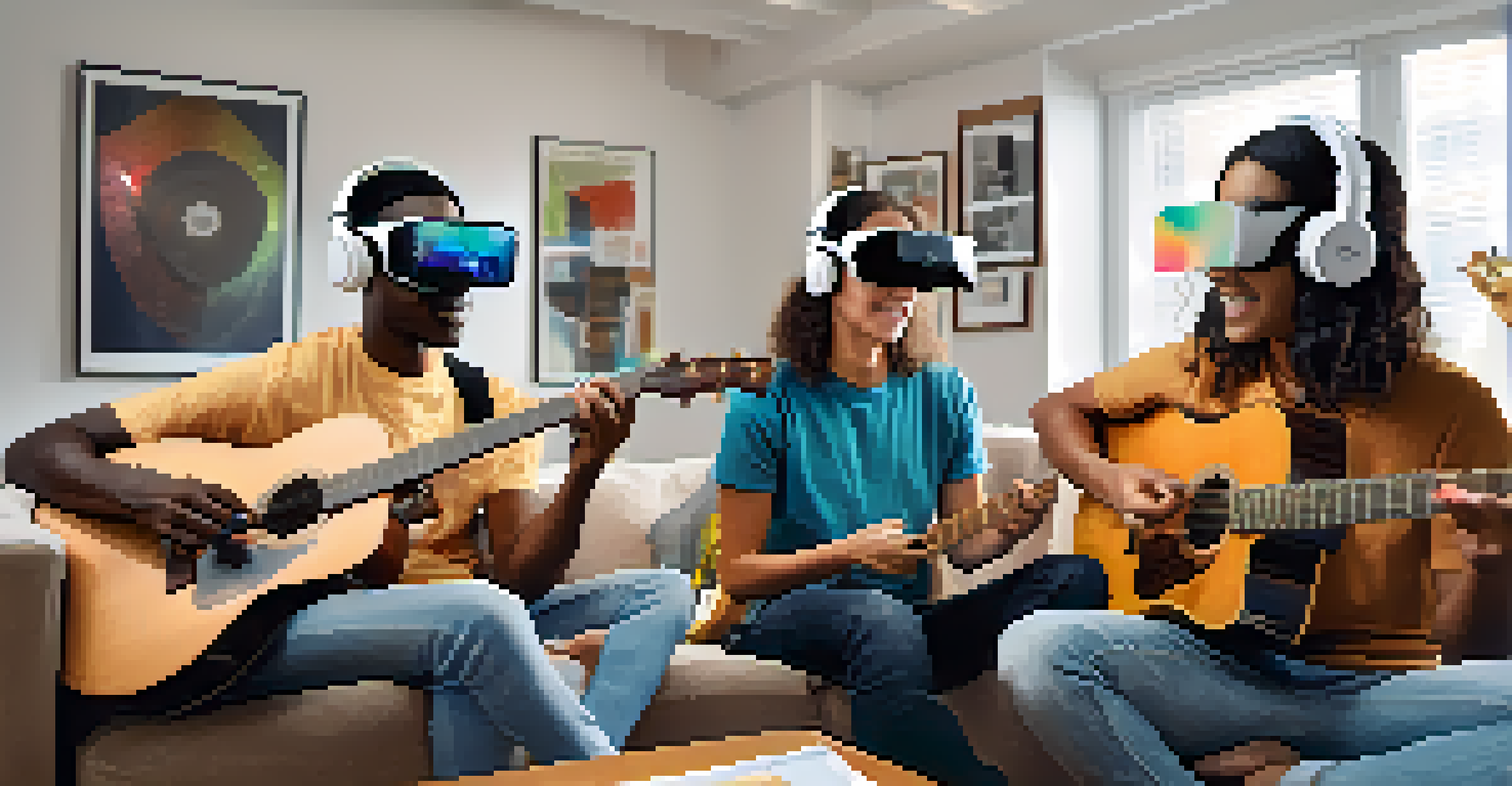Interactive Guitar Learning Platforms: A New Era of Education

The Rise of Interactive Learning in Music Education
In recent years, interactive learning has gained traction in various educational fields, including music. Platforms that offer real-time feedback and engaging content are making it easier for aspiring guitarists to learn at their own pace. This shift from traditional methods to digital tools has opened up new avenues for both beginners and seasoned players alike.
Music is an outburst of the soul.
Unlike conventional lessons, which often rely heavily on rote learning, interactive platforms provide a more dynamic experience. They incorporate features like video tutorials, gamified lessons, and peer interaction, making the learning process feel less daunting. This modern approach appeals to the digital generation, who crave instant gratification and engaging content.
Moreover, the accessibility of these platforms means that anyone with an internet connection can start their guitar journey. This democratization of music education fosters a diverse community of learners, allowing individuals from various backgrounds to pursue their passion for music without geographical barriers.
Key Features of Interactive Guitar Learning Platforms
Interactive guitar learning platforms come packed with features designed to enhance the learning experience. For instance, many offer progress tracking, allowing users to see how far they’ve come and what skills they still need to work on. This not only boosts motivation but also helps learners set achievable goals.

Another standout feature is the use of multimedia content. Video lessons, audio clips, and visual aids cater to different learning styles. Whether you're a visual learner who benefits from seeing finger placements or an auditory learner who needs to hear the notes, these platforms provide tailored experiences to meet diverse needs.
Interactive Learning Transforms Music
Interactive platforms are revolutionizing music education by offering engaging, real-time feedback that caters to diverse learning styles.
Additionally, community forums and social features allow learners to connect with others. This can lead to collaborative learning, where students share tips, song recommendations, and even challenges. Having a supportive community can significantly enhance the learning experience, making it both enjoyable and effective.
The Role of Gamification in Guitar Learning
Gamification is a powerful tool used by interactive guitar platforms to make learning fun and engaging. By incorporating game-like elements, such as earning points or leveling up, these platforms tap into our natural desire for achievement. This approach transforms practice sessions into enjoyable challenges rather than tedious tasks.
The beautiful thing about learning is that no one can take it away from you.
For example, some platforms allow users to compete with friends or other learners in practice challenges. This friendly competition can motivate individuals to practice more frequently and improve their skills faster. The thrill of beating a high score or completing a difficult song can create a rewarding experience that keeps learners coming back for more.
Moreover, gamification can help reduce the frustration often associated with learning an instrument. By breaking down complex songs into simpler tasks and rewarding progress, learners are encouraged to persevere. This method not only builds confidence but also reinforces the idea that practice can be enjoyable.
Accessibility and Affordability of Online Learning
One of the most significant advantages of interactive guitar learning platforms is their accessibility. Aspiring guitarists no longer need to travel to a music school or hire a personal instructor, which can be time-consuming and costly. With online platforms, learners can access quality content from the comfort of their homes, making it a convenient option for busy schedules.
Affordability is another crucial factor. Many platforms offer free trials or subscription-based models that are significantly cheaper than traditional lessons. This financial accessibility means that more people can embark on their musical journey without breaking the bank, fostering a love for music across various demographics.
Gamification Boosts Motivation
Incorporating game-like elements into guitar learning encourages practice and makes the experience enjoyable, helping learners stay committed.
Additionally, the flexible nature of online learning allows users to choose when and how they want to practice. This level of autonomy empowers learners to create their own schedules, making it easier to balance guitar practice with other commitments, like work or school.
Personalization: Tailoring Learning to Individual Needs
Personalization is a key component of many interactive guitar learning platforms. They often use algorithms to assess a learner’s skill level and preferences, creating a customized learning path. This means that each user receives guidance tailored specifically to their needs, enhancing the overall learning experience.
For instance, a beginner may start with basic chords and simple songs, while an intermediate player might dive into advanced techniques and music theory. This level of customization ensures that learners are neither overwhelmed nor bored, keeping them engaged in their practice.
Furthermore, personalized feedback is often provided through video analysis or interactive quizzes. This immediate response helps learners understand their strengths and areas for improvement, fostering a continuous cycle of growth and development.
Real-Time Feedback: Enhancing Learning Efficiency
One of the standout features of interactive guitar platforms is the ability to provide real-time feedback. This technology enables learners to receive immediate corrections on their playing techniques, allowing them to make adjustments on the spot. This kind of instant feedback is crucial for developing muscle memory and refining skills effectively.
For example, some platforms use audio recognition technology to analyze the notes played and identify mistakes. This not only helps learners correct their errors but also reinforces proper techniques, ensuring that bad habits don’t take root. The result is a more efficient learning process, as users can quickly address issues rather than waiting for a scheduled lesson.
Personalized Learning Paths
Many interactive platforms use algorithms to tailor the learning experience, ensuring that each student receives guidance suited to their skill level.
Additionally, real-time feedback fosters a sense of accomplishment. When learners can see and hear their progress immediately, it boosts their confidence and encourages them to keep practicing. This positive reinforcement is vital for maintaining motivation and commitment to learning the guitar.
The Future of Guitar Education: Trends and Innovations
As technology continues to evolve, the future of guitar education looks promising. Emerging trends indicate a growing integration of augmented reality (AR) and virtual reality (VR) into learning platforms. Imagine strumming along with a virtual band or receiving in-depth tutorials that feel like a live session; the possibilities are exciting.
Moreover, artificial intelligence (AI) is playing an increasingly important role in personalizing learning experiences. AI can analyze a learner’s progress in real-time and adjust lesson plans accordingly, ensuring that each user receives the most effective education tailored to their journey. This level of personalization is set to revolutionize how we approach music education.

Ultimately, the blend of technology and music education will continue to break barriers and create opportunities for aspiring guitarists. As more learners embrace these interactive platforms, we can expect a new generation of musicians who are not only skilled but also deeply passionate about their craft.